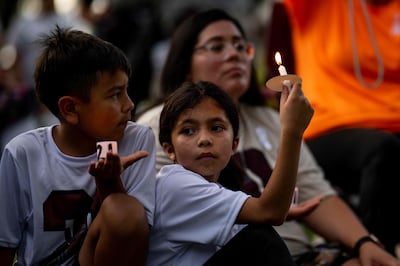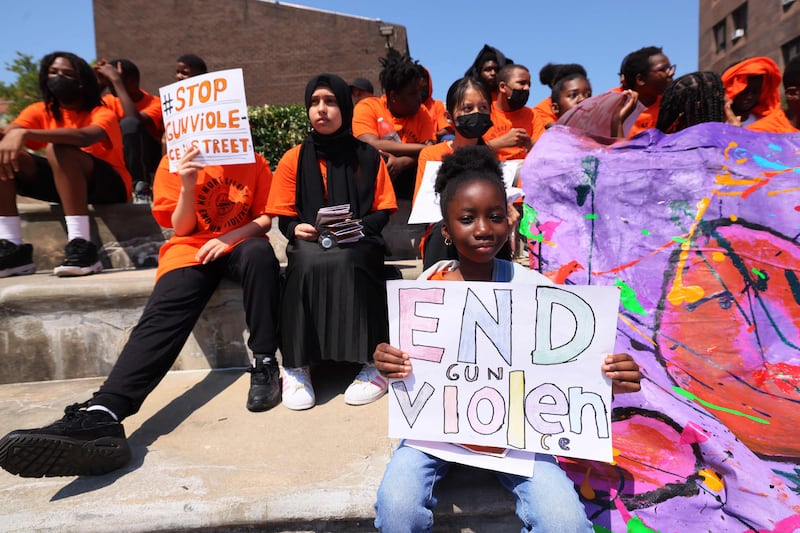Ruqaya Ali's son, Abdullah, was 16 years old when a fellow pupil shot four people dead and injured seven at his high school.
On November 30, 2021, the gunman opened fire in the hallway of the school – located in the small city of Oxford Township to the north of Detroit, Michigan – as pupils were changing classrooms.
Abdullah barricaded himself in a classroom for more than four hours. He lost his childhood friend, 16-year-old Tate Myre, a rising American football star.
“The trauma is going to be with him forever,” Ms Ali tells The National. “He is a much more serious and angry child since that happened.”
Ms Ali says her son, who recently graduated from high school, now wears only one headphone in his ear to make sure he is always aware of his surroundings. He is also overly concerned about security protocols, including at the university he has enrolled in.
“It has affected how we view everything – it directs our life on a daily basis, nothing's ever been the same since then as a family,” Ms Ali adds. “Everything changed for us.”
The US marks Gun Violence Awareness Day on Friday, with survivors and supporters wearing orange to raise awareness of the tens of thousands killed by guns every year.
The campaign dates back a decade, when Hadiya Pendleton, a 15-year-old girl from Chicago, Illinois, was shot in the back and killed while standing with friends in a park – one week after taking part in the inauguration of then-president Barack Obama.
After the shooting, Hadiya's friends commemorated her life by wearing orange, the colour hunters wear when they are in the woods to protect themselves from being shot. The message caught on and became a national symbol for demands to do more to stop gun violence.
But the issue of gun control is a political minefield, with deep divisions over how the US should preserve the constitutional right to bear arms while also addressing epidemic levels of deadly shootings.
A survey published last month found that 26 per cent of Americans believed that access to firearms is the greatest public health danger, up from 17 per cent in February.
President Joe Biden, a Democrat, has long advocated gun reform, including a ban on assault weapons. But that effort, as well as others, have been met with staunch resistance from Republican politicians, backed by the powerful gun lobby.

Late last month, the nation marked the sombre anniversary of the 19 children and two teachers who were shot dead at their school in Uvalde, Texas – the third deadliest shooting in the US.
Gun violence is a leading cause of premature death in the US, according to official data. Each year, more than 38,000 people are killed by guns, with slightly more than half the deaths accounted for by people who killed themselves.
So far this year, firearms have ended the lives of 17,857 people in the US and more than 14,000 injured have been injured, according to data compiled by the Gun Violence Archive.
There have been 268 mass shootings so far this year.
Schools, theatres, restaurants, places of worship, shopping centres, parades and concerts have all been targets of mass shootings, and many Americans say that they feel being shot is a daily threat.
Amid a rise in shootings, the voices demanding change are growing louder.
Ms Ali says that it used to be the case, for instance, that there were few Muslim-American survivors of gun violence. Now, after yet another shooting at Michigan State University in February killed three students, the tragically growing community of Muslim survivors are calling for change.
Ms Ali says gun reform and safety protocols will not be enough to address the dangers felt by Americans everywhere, let alone the scars the violence has left behind.
“The whole school experience, the trauma was a concentric circle – the ripples affected everybody in our community,” she says.
“And what we're doing is like putting a bandage on it. No one is addressing the larger issues of access to weapons and gun culture.”







